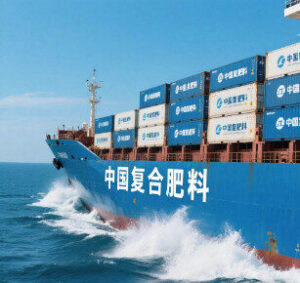Effective regulation of fertilizers is crucial for agricultural productivity, environmental protection, and market fairness. Thailand and Pakistan, both significant agricultural economies, have established distinct regulatory frameworks governing the manufacture, import, distribution, and quality control of fertilizers. This article provides a comparative overview of the key regulatory requirements in both countries.
1. Pakistan Fertilizer Regulatory Framework
Pakistan’s fertilizer sector is governed primarily by the Fertilizer Control Act of 1999 and the Agricultural Pesticides Rules of 1973, supplemented by provincial legislation. Following privatization and deregulation, private distributors dominate the market, but stringent controls ensure quality and safety.
-
1.1 Core Regulatory Aspects:
-
Brand Registration: Mandatory prior registration of any fertilizer brand before manufacture, sale, or promotion. Applications are submitted to the Director General of Agriculture (Extension) and Adaptive Research.
-
Plant Registration: Manufacturing/formulation plants must register with the Department of Plant Protection.
-
Import Regulations: Pesticides (including certain fertilizers) require pre-import registration. Imported goods must strictly adhere to registered specifications.
-
Quality Standards: Fertilizers must meet defined quality parameters (e.g., specific composition, pH levels) set by the government or the Pakistan Standards and Quality Control Authority (PSQCA).
-
Provincial Variation: Specific requirements differ across provinces (e.g., Punjab Fertilizer Act, 2018; Khyber Pakhtunkhwa Fertilizer Control Act, 1999), covering registration processes and enforcement.
-
-
1.2 Registration Process:
-
Involves submitting a prescribed application form with detailed product information (composition, manufacturing process, intended use).
-
Requires payment of prescribed fees.
-
Successful applicants receive a Registration Certificate.
-
Registrations are subject to periodic renewal.
-
2. Thailand Fertilizer Regulatory Framework
Thailand regulates fertilizers under the Fertilizer Act, administered by the Department of Agriculture (DOA). The focus encompasses conventional, organic, and bio-fertilizers, with strict controls on import, production, and labeling.
-
2.1 Core Regulatory Aspects:
-
Licensing & Registration:
-
Licenses/Permits are required for manufacturing, selling, importing, exporting, and transporting fertilizers.
-
Organic and bio-fertilizers require specific registration. Products containing GMOs face additional bio-safety scrutiny.
-
-
Key Technical Requirement (NPK): For imported mineral fertilizers, the sum of NPK percentages must be ≥ 21%, and each individual N, P, or K value must be either 0 or ≥ 3% (e.g., 0-12-24 is valid; 5-2-7 or 12-2-9 are invalid).
-
Import Procedures:
-
An Import License (valid for one year, renewable) is mandatory prior to importation.
-
Requires extensive documentation (e.g., Fertilizer Export Notification, Import License application, certificates of analysis, free sale certificate).
-
Imported goods are processed through DOA’s Plant Inspection Stations.
-
-
Labeling & Product Declaration: Strict requirements govern labeling, ensuring accurate declarations of composition, function (especially for adjuvants/soil conditioners), marketing intent, and displaying the valid Import License number and registration year. Adjuvants also fall under the Consumer Protection Act.
-
Domestic Production: While production for internal use may be exempt, selling domestically produced organic fertilizers requires licensing/registration.
-
Organic Fertilizer Standards: Specific standards exist (e.g., minimum nutrient content for liquid organics, limits on heavy metals, organic certification requirements).
-
3. Comparative Analysis: Key Differences
| Feature | Pakistan | Thailand |
|---|---|---|
| Governing Law(s) | Fertilizer Control Act 1999, Provincial Acts, Agricultural Pesticides Rules 1973 | Fertilizer Act |
| Lead Agency | Provincial Agriculture Depts, Plant Protection Dept | Department of Agriculture (DOA) |
| Registration Focus | Fertilizer Brand | Product Formulation + Importer License |
| Key Technical Barrier | Compliance with PSQCA/Govt Standards | NPK Sum ≥ 21% & Individual N/P/K ≥ 3% or 0 |
| Import License | Required (linked to registration) | Required (Separate annual license) |
| Labeling Emphasis | Quality Standards | License No., NPK, Function, Consumer Info |
| Organic/Bio Specifics | Integrated within general framework | Separate registration, GMO checks, specific standards |
| Provincial Variation | Significant (Different provincial laws) | Centralized (DOA) |
| Enforcement Priority | Quality & Fair Trade | Import Control & Label Compliance |
4. Challenges and Considerations
-
Pakistan: Navigating provincial regulatory differences adds complexity for nationwide operations. Ensuring consistent quality control across a privatized distribution network remains a focus.
-
Thailand: The stringent NPK requirement (21%/3%) poses a significant barrier for many international fertilizer formulations. The annual import license renewal and complex documentation for imports add administrative burden. Enforcement against illegally imported fertilizers is reported to be limited, though usage of unregistered products may hinder GACP/GMP certification. Companies sometimes attempt to register liquid fertilizers as “additives” to bypass NPK rules, creating a regulatory grey area.
-
Both: Transparency in dealings with regulators and adherence to environmental safety guidelines are emphasized.
5. Conclusion
Thailand and Pakistan employ robust, albeit distinct, regulatory systems for fertilizers. Pakistan emphasizes brand registration and quality standards within a provincial framework, while Thailand enforces centralized control through the DOA, featuring unique technical barriers like the NPK rule and stringent import licensing. Understanding these intricate frameworks – including provincial nuances in Pakistan and Thailand’s NPK threshold – is essential for businesses seeking market entry or compliance. Companies must prioritize due diligence, accurate documentation, and engagement with local legal/regulatory experts to successfully navigate these requirements. While enforcement approaches differ, both systems aim to safeguard agricultural productivity, consumer interests, and environmental health.







